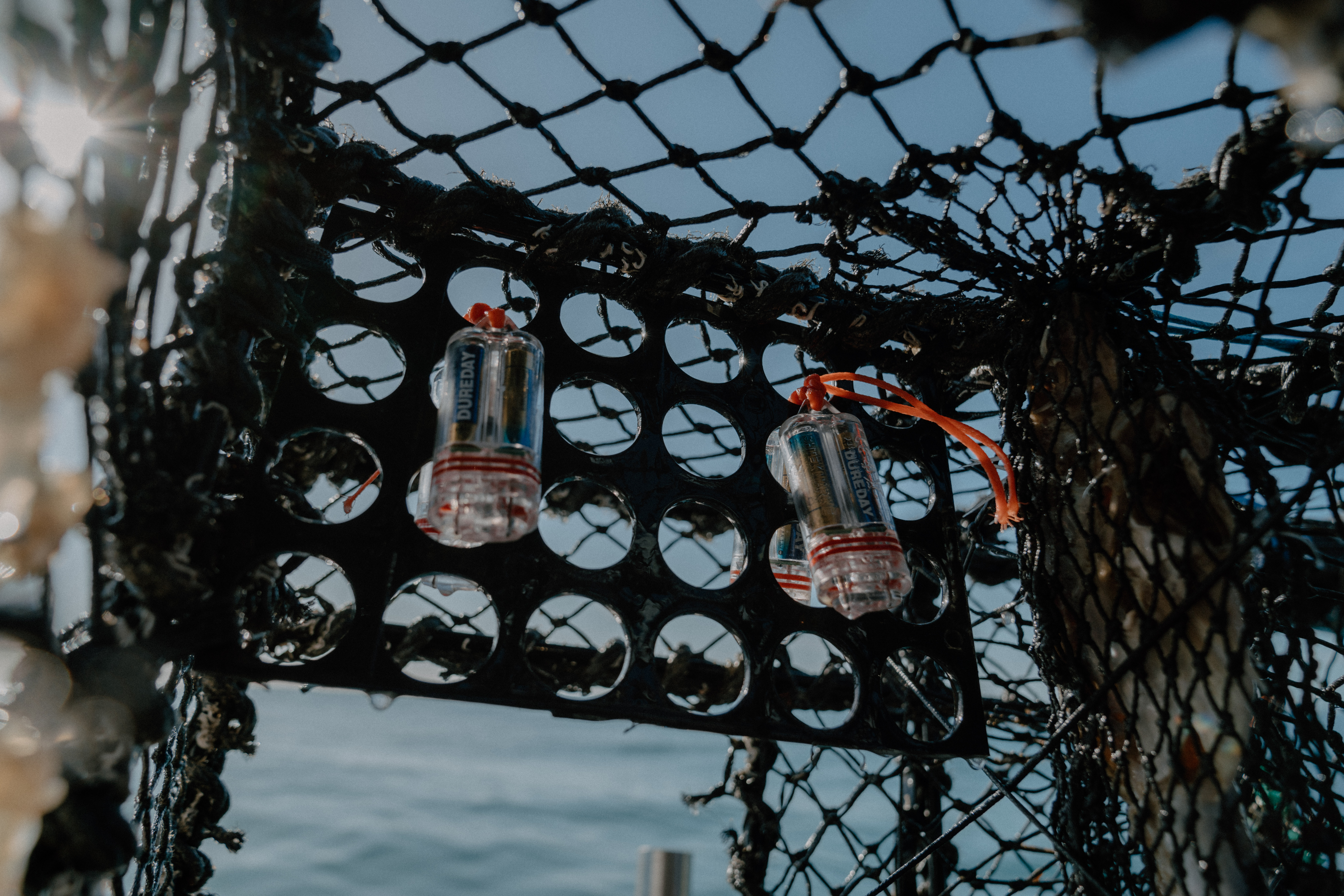
Sustainably-caught Disco Scallops have been added to the menu after a chance discovery that the shellfish were attracted to fishing pots with lights.
The findings have been developed into a low-impact inshore fishery which offers an alternative to scallops caught through dredging, the initiative’s backers said.
Most commercial scallop harvesting is carried out using dredges which are dragged over the seabed to scoop up the shellfish, harming sensitive habitats and species, while low-impact methods for harvesting them by diving produce a limited catch.
In 2022, scientists from Fishtek Marine, a Devon conservation engineering company focused on technology to reduce bycatch, were working with Newlyn-based Cornish fisherman Jon Ashworth to trial “Potlights” – small underwater lights to bait crab and lobsters pots instead of fish bait.

The team discovered the lights combined with specially-modified pots were attracting large numbers of scallops, which have 200 tiny eyes, in addition to the crabs and lobsters that were being targeted.
They nicknamed the pots with lights “scallop discos” and Fishtek Marine has worked over the last two years alongside UK fishing pot-makers and the University of Exeter to perfect the design and run trials with fishermen around the country to test out the pots.
The Disco Scallop brand has been registered and a new collective between Fishtek Marine, restaurant entrepreneur Lee Cash, who has added them to the menu at some venues, and 40 boats using the technology has been created to market the shellfish and encourage more fishermen to diversify their catch.
Mitch Tonks, chef and founder of sustainable seafood restaurant group Rockfish, has added Disco Scallops to the menu at several of his restaurants, describing them as the “scallops of the future”.
The scallops are high-quality, plump, sweet and gorgeous
“We’re incredibly excited about this brilliant innovation which offers a sustainable alternative to dredged scallops and also supports UK fishermen by helping them diversify,” he said.
“The scallops are high-quality, plump, sweet and gorgeous.”
Rachel Walker, from The Disco Scallop Collective, said: “By putting modified pots in the water, fishermen are being given a chance to diversify their catch and secure new income streams, while consumers gain access to a sustainable, seabed-safe scallops they can enjoy guilt-free.”
Dr Robert Enever, from Fishtek Marine, said it could help the fishing industry in the face of rising fuel costs, post-Brexit regulatory changes, reduced catches and unstable prices, particularly enabling fishermen to diversify beyond crab and lobster fisheries that have faced increasing challenges in recent years.
“We are also exploring new opportunities for catching scallops within offshore wind developments where dredging is restricted,” he added.
Fishing really needs to change, it's not about catching as much as you can, it's about catching what you can sustainably
Jon Hayes, a crab and lobster fisherman from St Mawes, Cornwall, said: “The pots are working very well and in some I’ve had over 60 scallops out of one pot. You can’t get much better than that.”
He added the pots seemed to catch more scallops in winter, which was useful for small-scale fishermen like himself, and that using them “feels like I’m part of the future really. It’s made my life feel a bit more worthwhile”.
“Fishing really needs to change, it’s not about catching as much as you can, it’s about catching what you can sustainably,” he said.
The development of the sustainable pots has received funding from Natural England, the UK Government’s seafood innovation fund, the Crown Estate, the Esmee Fairbairn Foundation, Fishmongers Company and the Devon Environment Fund.







